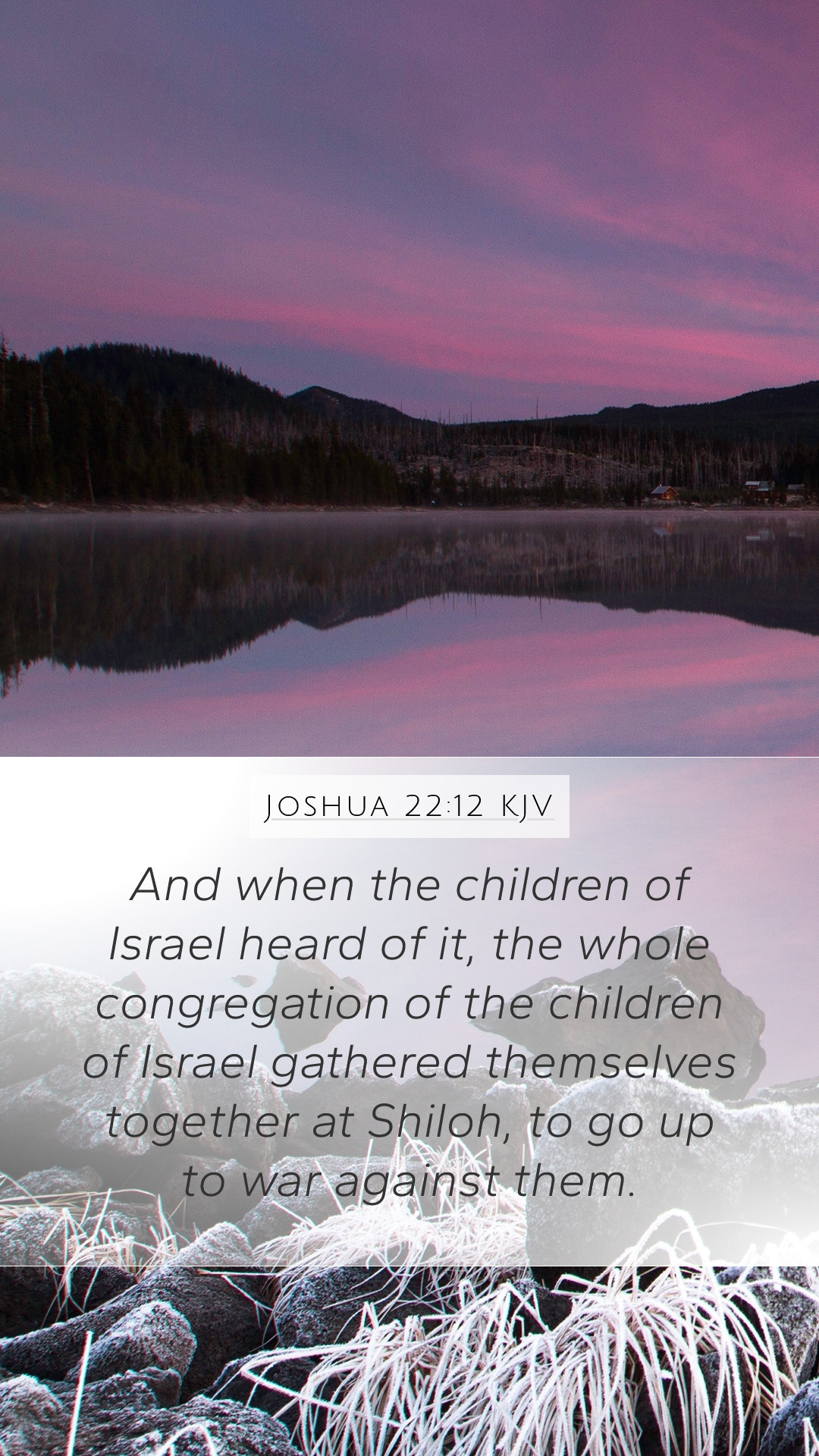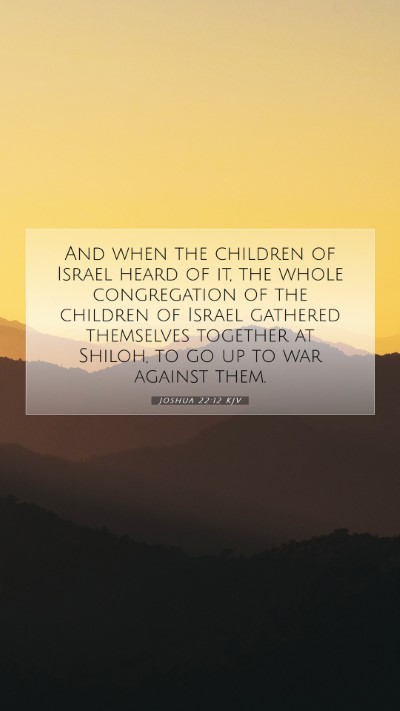Understanding Joshua 22:12: A Comprehensive Commentary
The verse Joshua 22:12 states: "And when the children of Israel heard of it, the whole congregation of the children of Israel gathered themselves together at Shiloh, to go up to war against them."
Bible Verse Meanings
This verse captures a pivotal moment of conflict and response among the Israelites. After hearing news that the tribes of Reuben, Gad, and half of Manasseh had built an altar, the other tribes felt compelled to take action. The intensity of their reaction underscores the importance of unity and adherence to God’s commands among His people.
Bible Verse Interpretations
Matthew Henry notes that this gathering of the congregation indicates a serious concern regarding fidelity to God's standards. The construction of an altar by the eastern tribes was interpreted as a potential act of rebellion or idolatry; hence, the urgency for confrontation.
Albert Barnes elaborates that Shiloh was the religious center at the time, and the congregation’s decision to mobilize signifies a unified response grounded in their shared faith. This reflects the communal aspect of worship and governance in ancient Israel.
Bible Verse Understanding
Adam Clarke emphasizes the importance of context in understanding the verse. The eastern tribes had built an altar not for sacrifice but as a witness to their identity and faith. The misunderstanding leads to potential conflict, highlighting the necessity for communication and discernment within the community.
Bible Verse Explanations
The verse serves as a crucial lesson about the dangers of assumptions and haste in judgment. The Israelites acted on hearsay without fully understanding the intentions of their brethren, showing that miscommunication can lead to unnecessary strife.
In-Depth Scripture Analysis
- Community and Unity: The gathering reflects a strong communal bond, suggesting that in matters of faith, collective action is often deemed necessary.
- Importance of Context: Understanding the intentions behind actions is critical to maintaining harmony within the faith community.
- Response to Potential Conflict: The quick mobilization for war underscores the gravity of perceived disobedience and the lengths to which the Israelites would go to preserve their covenant relationship with God.
Historical Context of Bible Verses
The events of this passage reflect the historical context in which the Israelites lived—one characterized by tribal divisions and the constant struggle against idolatry. This dynamic informs both the reaction of the tribes and the significance of their covenant relationship with God.
Cross References
- Deuteronomy 13:1-5: Regulations against false worship.
- Joshua 22:29: The explanation of the altar's purpose by the eastern tribes.
- 1 Corinthians 1:10: The call for unity among believers.
Application of Bible Verses to Daily Life
This verse encourages individuals and communities to seek clarity and understanding before jumping to conclusions. It illustrates the importance of dialogue and the need to address concerns thoughtfully and prayerfully.
- Engaging in Communication: Before acting on perceived wrongs, we should seek to understand the motivations and intentions behind actions.
- Fostering Unity: As believers, it is crucial to uphold unity and strive for peace among one another, reflecting the heart of Christ in our interactions.
- Prioritizing God’s Commands: The gathering at Shiloh serves as a reminder of our obligation to maintain fidelity to God and His ways.
Bible Study Insights
For those engaging in Bible study groups or seeking Bible study resources, this verse presents an excellent case study in conflict resolution, communal responsibility, and the importance of understanding in matters of faith. Reflecting on this passage can prompt discussions on how to apply these principles in modern Christian communities.


